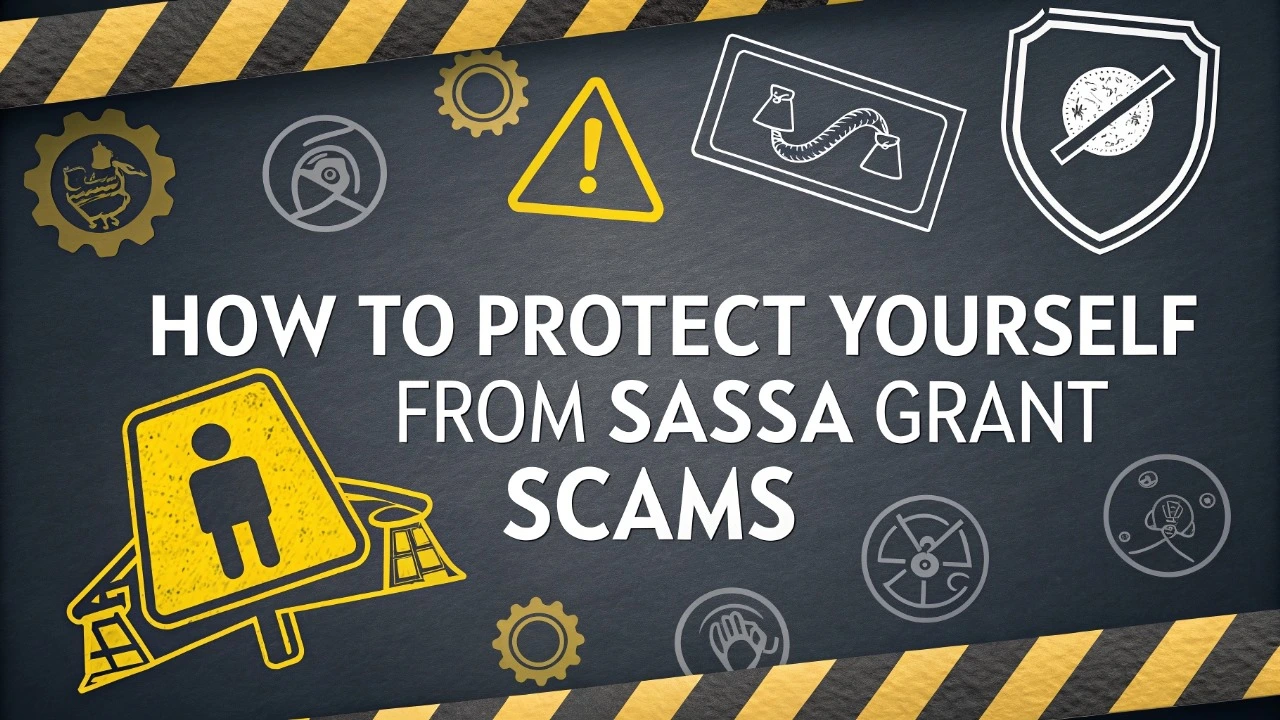South Africa’s Social Security Agency (SASSA) provides financial relief to millions of citizens through social grants. Unfortunately, scammers exploit these grants, targeting beneficiaries with fraudulent schemes. Falling victim to a scam can result in financial loss and personal information theft. In this article, we will discuss the most common SASSA grant scams, how to recognize them and practical steps to protect yourself.
Understanding SASSA Grant Scams
Scammers use various tactics to steal money and personal information from grant recipients. These schemes include phishing, fake websites, SMS fraud, social media scams, and impersonation of SASSA officials. By understanding these tactics, you can stay vigilant and protect yourself from falling prey to fraudsters.
1. Phishing Scams
Phishing scams involve fraudsters pretending to be SASSA representatives. They send emails, SMS messages, or WhatsApp texts claiming that your grant has issues, needs verification, or has been suspended. They then request personal information such as your ID number, banking details, or OTPs (one-time pins).
How to Spot a Phishing Scam:
- SASSA never asks for personal banking details via SMS, email, or phone calls.
- Messages with urgent warnings and threats of grant suspension are likely fraudulent.
- Suspicious links that redirect you to fake websites should not be clicked.
2. Fake Websites
Scammers create fake SASSA websites that look like the official one. These websites trick users into entering personal information, which scammers then use to steal money or commit identity fraud.
How to Identify Fake Websites:
- Always check the URL before entering any information. The official SASSA website is https://www.sassa.gov.za/.
- Avoid websites with unusual domain names like "sassa-gov.co.za" or "sassa-grants.info".
- Secure websites have a padlock symbol (🔒) in the address bar.
3. SMS and WhatsApp Scams
Fraudsters send text messages or WhatsApp alerts claiming that a special SASSA pay-out is available. They may ask you to provide personal details or click on a link to claim your "bonus grant."
How to Avoid SMS/WhatsApp Scams:
- Ignore messages from unknown numbers claiming to be from SASSA.
- Do not share your grant details via WhatsApp or SMS.
- Verify any SASSA-related messages by calling the SASSA helpline at 0800 60 10 11.
4. Social Media Scams
Scammers create fake Facebook pages and social media accounts pretending to be SASSA. They promise faster grant approvals or additional financial assistance in exchange for personal information or a "processing fee."
How to Spot Fake Social Media Pages:
- The official SASSA social media accounts have a blue verification tick.
- Genuine SASSA accounts do not ask for payments or personal information.
- Be cautious of social media giveaways and fake advertisements promising extra grants.
5. Fake SASSA Agents and Officials
Some scammers impersonate SASSA officials, approaching beneficiaries in person or over the phone. They claim to offer assistance with grant applications or faster payouts but demand a fee or personal documents.
How to Identify Fake Agents:
- Real SASSA officials never charge a fee for services.
- Always verify an official’s identity by requesting their SASSA employee card.
- SASSA services are provided free of charge, including grant applications and updates.
Here's How to Protect Yourself from SASSA Scams
To prevent yourself from becoming a victim of SASSA scams, follow these essential security measures:
1. Never Share Personal Information
- Do not disclose your ID number, banking details, or OTP codes to anyone over the phone, SMS, email, or social media.
- Only update your information through official SASSA offices or the official website.
2. Verify All Communication
- If you receive a suspicious message, call SASSA directly at 0800 60 10 11 to verify its authenticity.
- Do not click on links in unsolicited emails or SMS messages.
3. Use Only Official SASSA Channels
- Visit https://www.sassa.gov.za/ for updates.
- Follow verified SASSA social media pages.
- Apply for grants through official offices, not through third-party websites.
4. Report Suspicious Activity
- If you encounter a scam, report it to SASSA immediately.
- Report fraudulent websites to the South African Cybersecurity Hub at cybersecurityhub.gov.za.
- If you have already been scammed, contact your bank to secure your account.
5. Educate Others About SASSA Scams
Many people, especially the elderly and those with limited internet access, are at risk. Inform family members and friends about common scams and how to stay safe.
What to Do If You Have Been Scammed
If you suspect that you have been scammed, take immediate action to limit the damage:
- Contact Your Bank – If you provided banking details, inform your bank to freeze unauthorized transactions.
- Report to SASSA – Call the SASSA helpline and report the scam.
- File a Police Report – Visit your nearest police station and provide details of the scam.
- Change Your Passwords – If your personal information was compromised, change your online banking passwords and secure your email accounts.
Conclusion
SASSA grants provide essential financial support to many South Africans, but scammers constantly try to exploit beneficiaries. By staying informed about the latest scams and following safety precautions, you can protect yourself and your loved ones from fraud. Always verify information through official SASSA channels, never share personal details with unknown individuals, and report any suspicious activity immediately.
